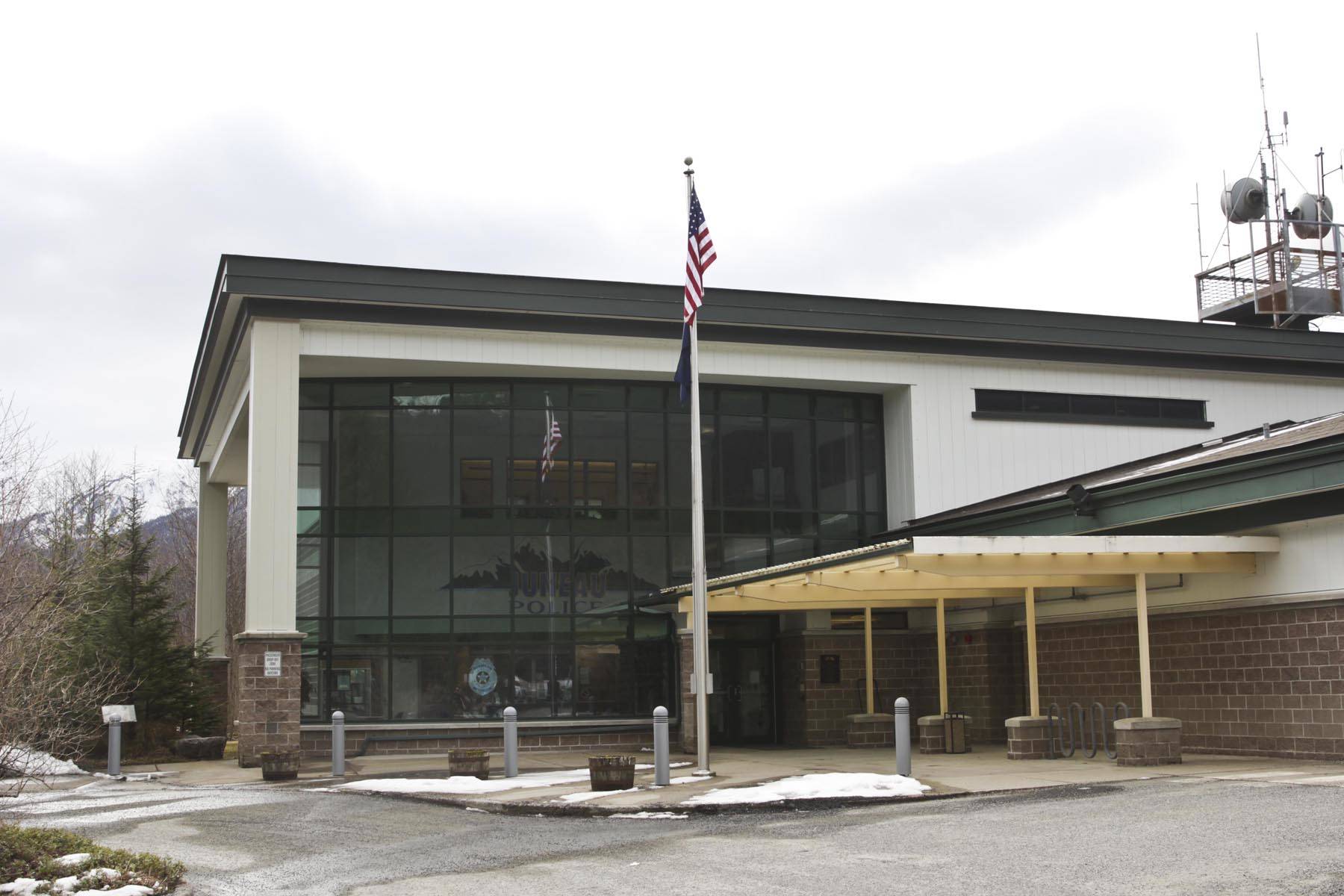The Juneau Police Department is modifying its operating procedures to reduce risk of COVID-19 infection, a spokesperson said Wednesday.
“Because of this epidemic, people are forced to find new ways to do things,” said JPD Lt. Krag Campbell in a phone interview. “It’s about limiting our exposure to the public, and public’s to us.”
JPD will be closing its lobby until further notice, and working to curtail nonessential social interaction to the greatest extent practicable, Campbell said. This includes encouraging residents requiring assistance to file online.
[CCFR sets up drive-thru testing]
“If we have the ability to push something online, we’ll do it,” Campbell said. “That’s still sent to dispatch, and can be sent right to an officer.”
Officers will also be employing more discretion in choosing to arrest and jail subjects for non-violent offenses, to reduce strain on correctional facilities, which can be hotspots for disease outbreaks.
“We’re getting direction from the courts and prosecutors on this. Everyone’s affected,” Campbell said. “We look at this and we’re like: A person committed a crime. Do they need to go to jail?”
Campbell said that individuals committing crimes against other persons will still be arrested, but others may have their incarceration deferred until the threat of local outbreak has lessened.
“We can still file charges on them,” Campbell said. “You committed this crime, and you’re going to have to go to court and appear next month or something.”
Gloves are mandatory for all officers, Campbell said, and individual officers have discretion over face and eye protection. Officers who expect to be in close proximity with members of the public will be able to wear more protective equipment at their choice.
“It’s been a little tricky at first, since we don’t carry a ton of supplies,” Campbell said.
Once the city’s emergency operations center was stood up, more masks and other supplies were made available to JPD, Campbell said, but donations of things such as masks or gloves for police officers and other first responders were still welcome. He suggested contacting the nonemergency dispatch line at 586-0600 to find out how to donate.

